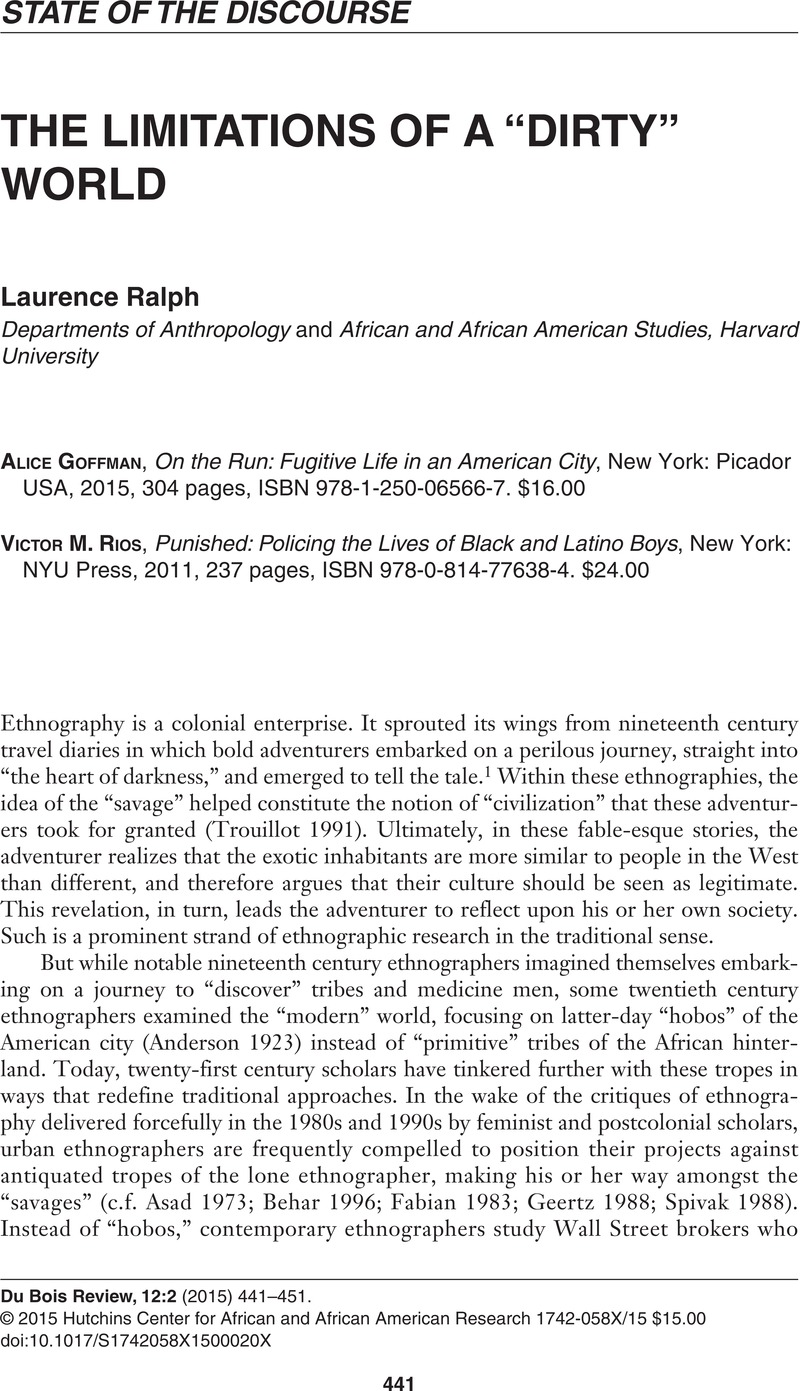Crossref Citations
This article has been cited by the following publications. This list is generated based on data provided by Crossref.
Rios, Victor M.
Carney, Nikita
and
Kelekay, Jasmine
2017.
Ethnographies of Race, Crime, and Justice: Toward a Sociological Double-Consciousness.
Annual Review of Sociology,
Vol. 43,
Issue. 1,
p.
493.
Seamster, Louise
and
Ray, Victor
2018.
Against Teleology in the Study of Race: Toward the Abolition of the Progress Paradigm.
Sociological Theory,
Vol. 36,
Issue. 4,
p.
315.
Fine, Gary Alan
2019.
Relational Distance and Epistemic Generosity: The Power of Detachment in Skeptical Ethnography.
Sociological Methods & Research,
Vol. 48,
Issue. 4,
p.
828.
Katz, Jack
2019.
Hot Potato Criminology: Ethnographers and the Shame of Poor People's Crimes.
Annual Review of Criminology,
Vol. 2,
Issue. 1,
p.
21.
Ray, Victor E.
2019.
Reproducing Inequality in Sociology.
Sociological Forum,
Vol. 34,
Issue. 1,
p.
236.
Eisenberg‐Guyot, Nadja
2023.
On how to live while being thrown away: Black people who use drugs and the politics of anti‐disposability, North Philadelphia, circa 2007 to 2010.
City & Society,
Vol. 35,
Issue. 3,
p.
180.
Yonucu, Deniz
2023.
Inspirational Hauntings and a Fearless Spirit of Resistance.
Current Anthropology,
Vol. 64,
Issue. 4,
p.
359.



